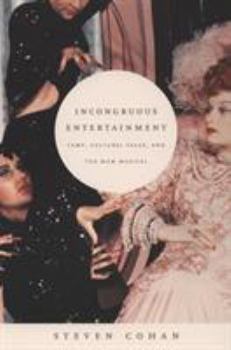Incongruous Entertainment: Camp, Cultural Value, and the MGM Musical
Select Format
Select Condition 
Book Overview
With their lavish costumes and sets, ebullient song and dance numbers, and iconic movie stars, the musicals that mgm produced in the 1940s seem today to epitomize camp. Yet they were originally made to appeal to broad, mainstream audiences. In this lively, nuanced, and provocative reassessment of the mgm musical, Steven Cohan argues that this seeming incongruity--between the camp value and popular appreciation of these musicals--is not as contradictory as it seems. He demonstrates that the films' extravagance and queerness were deliberate elements and keys to their popular success. In addition to examining the spectatorship of the mgm musical, Cohan investigates the genre's production and marketing, paying particular attention to the studio's employment of a largely gay workforce of artists and craftspeople. He reflects on the role of the female stars--including Judy Garland, Debbie Reynolds, Esther Williams, and Lena Horne--and he explores the complex relationship between Gene Kelley's dancing and his masculine persona. Cohan looks at how, in the decades since the 1950s, the marketing and reception of the mgm musical have negotiated the more publicly recognized camp value attached to the films. He considers the status of Singin' in the Rain as perhaps the first film to be widely embraced as camp; the repackaging of the musicals as nostalgia and camp in the That's Entertainment series as well as on home video and cable; and the debates about Garland's legendary gay appeal among her fans on the Internet. By establishing camp as central to the genre, Incongruous Entertainment provides a new way of looking at the musical.
Format:Paperback
Language:English
ISBN:0822335956
ISBN13:9780822335955
Release Date:October 2005
Publisher:Duke University Press
Length:384 Pages
Weight:1.10 lbs.
Dimensions:1.0" x 6.0" x 9.3"
Customer Reviews
0 rating





